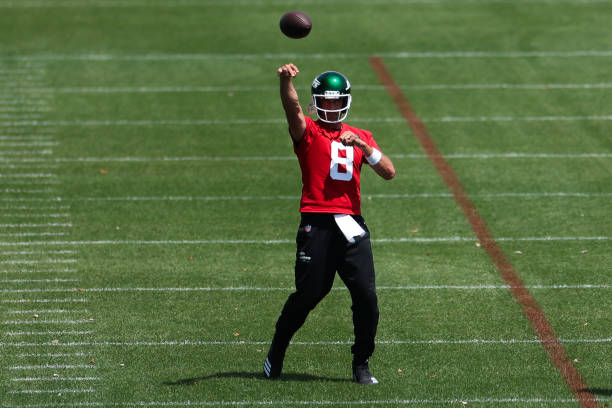In the world of professional football, team dynamics and leadership decisions often make headlines, but few have sparked as much debate as the New York Jets’ recent choice of Aaron Rodgers as team captain. While Rodgers is widely regarded as one of the most talented quarterbacks of his generation, the decision to name him team captain has stirred controversy among fans, analysts, and even some within the organization. This article explores the reasons behind the controversy and the potential implications for the Jets.
The New York Jets made headlines when they announced that Aaron Rodgers, their star quarterback acquired from the Green Bay Packers, would be serving as team captain. This role, traditionally held by players who embody leadership and represent the team’s core values, is a significant responsibility. The choice of Rodgers, given his extensive career and high-profile status, was both expected and surprising to many.

Rodgers, a four-time NFL MVP and Super Bowl champion, brings a wealth of experience and a track record of success. His leadership on the field is undeniable, and his influence in the locker room is substantial. However, the decision to appoint him as team captain has not been without its detractors.
One of the primary points of contention is the timing of Rodgers’ appointment. The quarterback is entering his first season with the Jets after a long tenure with the Packers. Critics argue that leadership roles should be earned over time and that appointing a newcomer as team captain might undermine the existing team dynamics. There are concerns that Rodgers, despite his impressive resume, has not had sufficient time to fully integrate with the Jets’ roster and understand the team’s culture.
Rodgers’ leadership style has been a subject of debate throughout his career. While he has enjoyed considerable success, some have questioned his ability to foster cohesive team dynamics. His tenure with the Packers was marked by occasional conflicts with management and teammates, and some fans worry that similar issues might arise with the Jets. The appointment of Rodgers as captain may be seen by some as an endorsement of a leadership style that has not always been universally accepted.
Team chemistry is a crucial factor in a successful NFL season. The Jets’ decision to make Rodgers a captain could impact the existing dynamics within the locker room. There is concern that this decision might create friction between Rodgers and the team’s long-standing veterans or players who have been with the organization through more challenging times. Effective leadership requires not only talent but also the ability to unify and inspire all members of the team, which some fear might be challenging given Rodgers’ recent arrival.
The choice of Rodgers as team captain has also been a media talking point, with various analysts and commentators weighing in. Public perception plays a significant role in the NFL, and the decision has sparked a range of opinions. Some view it as a bold and strategic move, while others see it as a potentially disruptive choice. The media’s focus on this decision could amplify the controversy, affecting the team’s public image and potentially adding pressure on Rodgers and the Jets.
The effectiveness of Rodgers as team captain will be closely monitored. If he successfully integrates into the Jets’ culture and leads effectively, the decision could prove to be a strategic masterstroke. Conversely, if the appointment creates division or if Rodgers struggles to adapt, it could affect the team’s performance and cohesion.
The morale of the Jets’ players will be an essential factor in determining the success of Rodgers’ captaincy. If players rally behind Rodgers and his leadership proves to be inspiring, the team could benefit from increased unity and motivation. However, any signs of discontent or division could undermine the team’s overall performance.
Ultimately, the success of the decision will be reflected in the Jets’ performance on the field. If Rodgers can lead the team to victories and demonstrate effective leadership, the controversy surrounding his appointment may fade. On the other hand, if the team struggles or if Rodgers’ leadership is questioned, the debate over his captaincy will likely continue.
The New York Jets’ choice to name Aaron Rodgers as team captain has undeniably stirred controversy, highlighting the complexities of leadership roles in professional sports. While Rodgers’ credentials as a quarterback are beyond dispute, the decision raises questions about timing, team dynamics, and leadership style. As the season progresses, the effectiveness of Rodgers’ captaincy will become clearer, and the debate over his appointment will likely evolve based on the team’s performance and his impact on the locker room. Until then, the controversy remains a focal point for fans, analysts, and the NFL community at large.
